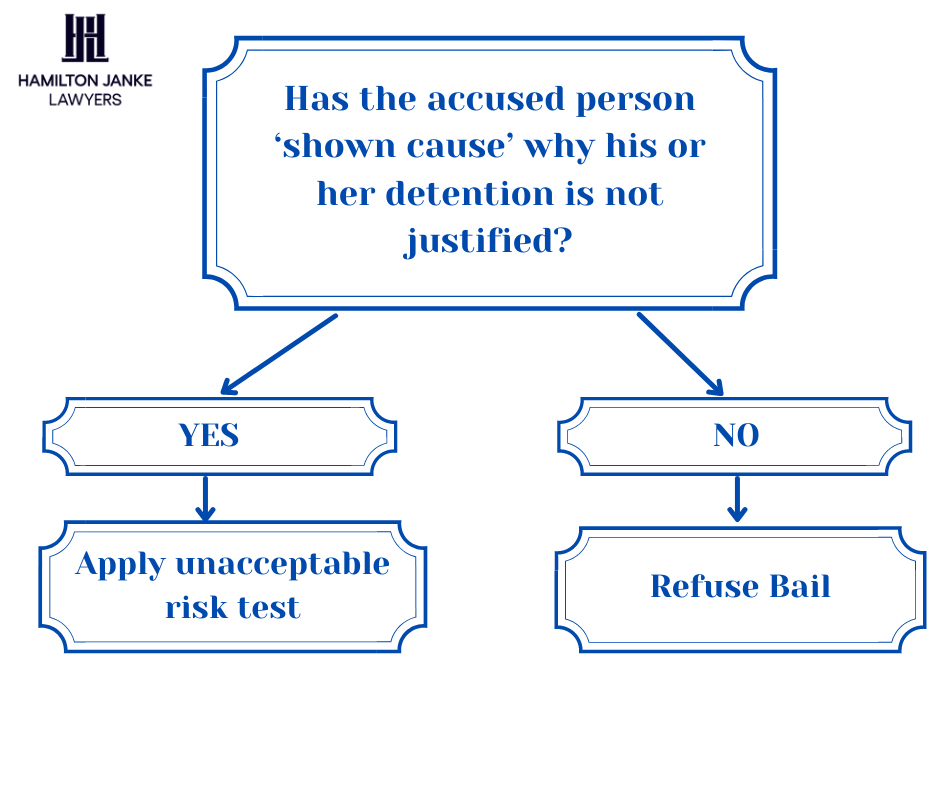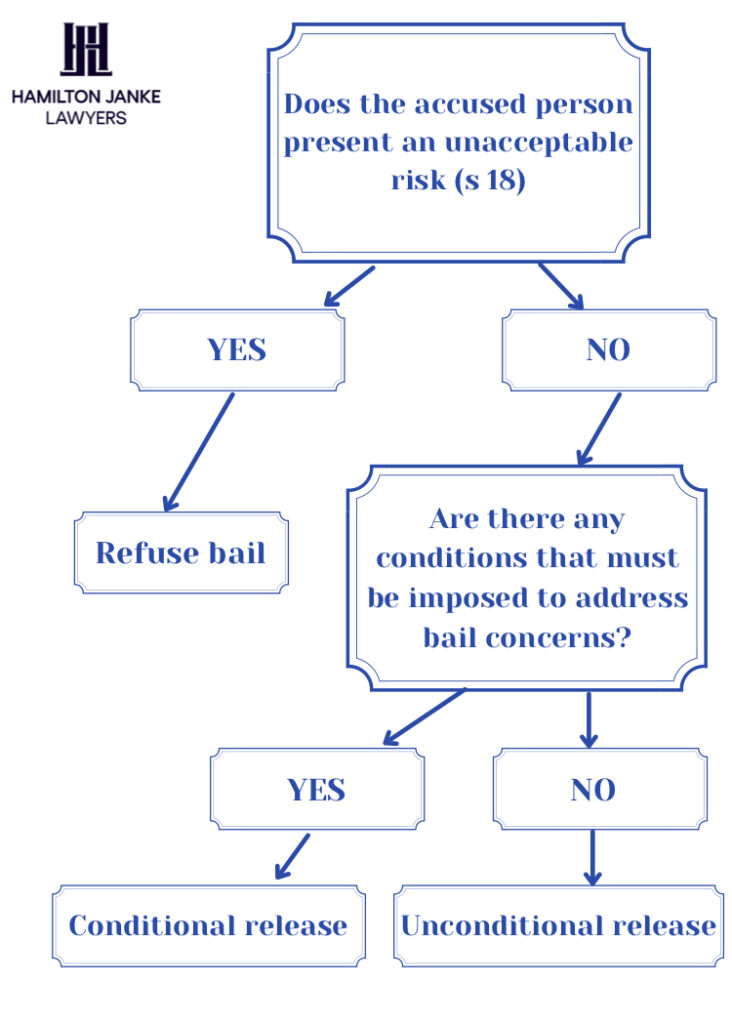An experienced bail lawyer can help you navigate the confronting process of a bail application, which can be a terrifying experience for an accused person and their loved ones.
Working with bail application lawyer is ideal, as you need to supply specific information and it can be a high stakes process. If a bail application is denied, an accused person can wait in prison for days, weeks or months (sometimes years) waiting for their case to go to trial.
In saying this, an experienced bail application lawyer will also know if future opportunities to complete a new bail application occur and are best suited to help you with this legal process over time.
Don’t increase the risk of being refused bail by attempting to handle the application process yourself, as you may end up separated from your loved ones for a significant time with only visiting hours and short calls to keep you connected.
Instead, contact Hamilton Janke Lawyers, expert criminal defence lawyers with years of experience in NSW bail applications. Read more about the bail process below, or if you are in need of legal representation or legal advice pertaining to bail, contact us today.
Don’t increase the risk of being refused bail by attempting to handle the application process yourself
James Janke - Criminal Lawyer
In NSW bail is mandated by the Bail Act 2013 (the Act).
The Act defines bail as the authority to be at liberty for an offence. This means that if you’re granted bail you will be allowed to remain in the community while you await the outcome of your court proceedings.
Bail is an important aspect of the presumption that an accused is innocent until proven guilty. It is grossly unfair for an accused to be deprived of their liberty before their matter has been heard by the court.
However, there are circumstances where an accused will be held in custody until their matter is decided by the court. This is referred to as being held “on remand”.
Bail can take different forms, and there are a number of factors that must be considered when determining whether to grant bail.
The Act outlines that bail can only be granted by a “bail authority”. The two main “bail authorities” are the police and the courts.
A police officer who is of or above the rank of sergeant has the power to grant an accused bail.
If the police do not grant an accused bail, they are required to bring the accused before a court “as soon as practicable”. This will usually be on the same day or the following morning.
The process adopted by the court in determining whether to grant bail to an accused will depend on the offence with which the accused has been charged.
The first step is to consider whether the accused has been charged with a “show cause” offence. The second is to apply the unacceptable risk test.

A “show cause” offence is a really serious offence, such as murder or a serious sexual offence.
A list of “show cause” offences is contained in section 16B of the Act. Some of the offences listed under section 16B include:
If an accused has been charged with a “show cause” offence, then they have the burden of demonstrating why their detention is unjustified.
If an accused fails to demonstrate that their detention is unjustified then bail will automatically be refused, and the accused will be held on remand.
The Act does not outline the requirements that must be fulfilled for an accused to “show cause”. Instead, a determination will be made on a case-by-case basis.
However, the Supreme Court has considered the following factors when deciding on the matter:
If an accused can “show cause” then the court will apply the unacceptable risk test.

Next, the courts will address four key bail concerns, which are:
The court will consider several factors to determine if an accused poses an unacceptable risk of doing any of the above. These factors are outlined in section 18 of the Act and include:
If the court determines that no unacceptable risk exists, they will usually release the accused on bail unconditionally. However, if the court is concerned about a potential risk, they may impose conditions on an accused’s bail to mitigate that risk.
Conditions that may be imposed on an accused often include things like surrendering their passport, residing at a particular address, or refraining from approaching a certain person or area.
There are often many months between being charged with an offence and having the matter finalised before a court. Therefore, it is extremely important to seek advice and representation from a criminal lawyer, who can guide you through the process and give you the best prospect of being granted bail.
As a result of the COVID-19 pandemic and the impact it has on prisons, inmates and the justice system, there have been a line of authorities addressing some additional considerations as to whether an accused person should be granted bail. The most recent authority being Director of Public Prosecutions (Cth) v Saadieh [2021] NSWSC 1186.
The Court may consider:
The courts are generally closed over Christmas and the holiday season, so what happens if you or a loved one is accused of a crime and police refuse to let you out of custody? Will you have to wait until the holidays are over before you can be brought before a court to apply for bail?
If you are arrested by police and charged with a criminal offence, they will decide whether to let you out of the police station until your court date.
This is called ‘police bail’. If you are refused police bail, they must bring you before a court as soon as practicable. This means that if you are arrested in the morning, you will normally be processed and brought before a court that afternoon. However, if the courts are closed by the time police finish processing you, you will be taken to court the next morning.
There are often many months between being charged with an offence and having the matter finalised before a court. Therefore, it is extremely important to seek advice and representation from a criminal lawyer, who can guide you through the process and give you the best prospect of being granted bail.
Whilst most NSW courts are closed over Christmas, Bails Court will remain open throughout the holiday period – including on the weekends.
Hamilton Janke Lawyers are one of the top rated Criminal Law Firms in the region. We treat every client with the respect and commitment they deserve. This commitment to our profession has earned us a reputation which we are very proud.


Going to court? Or maybe you just need advice? Contact us now.